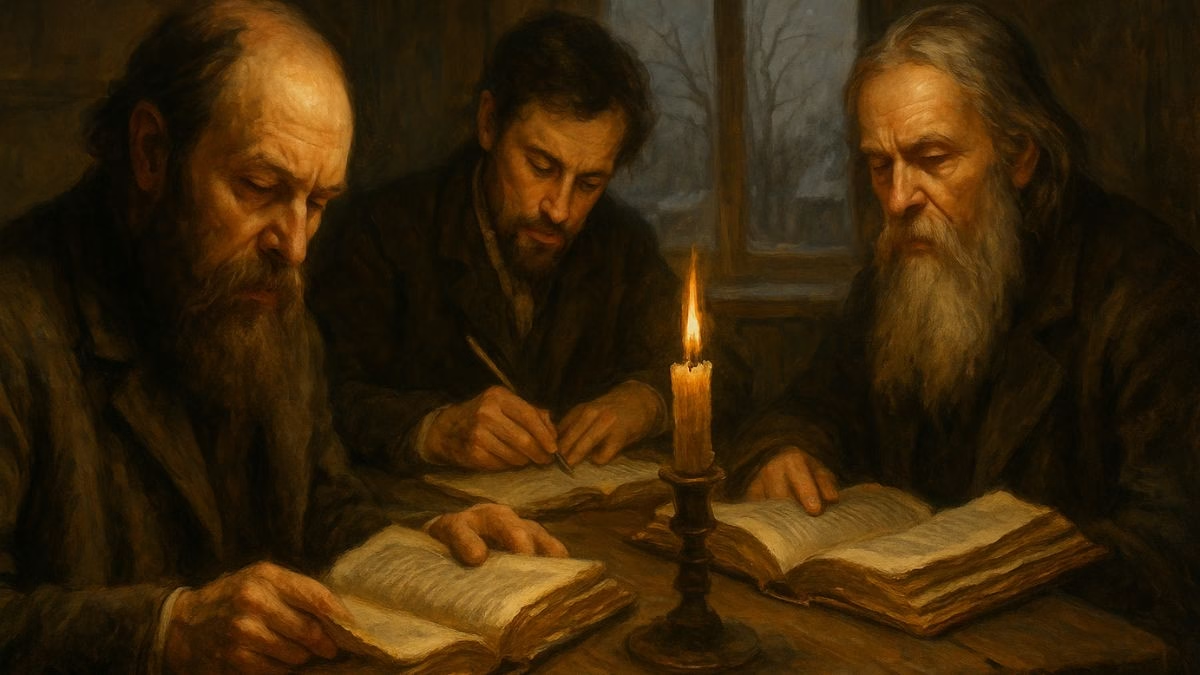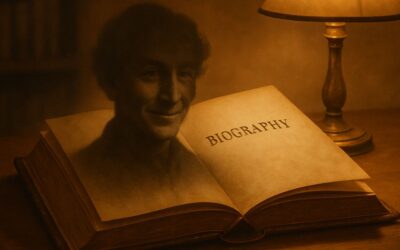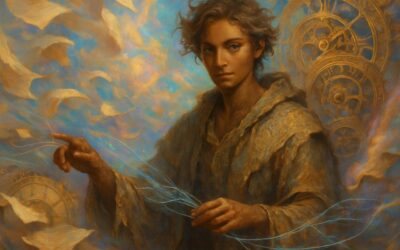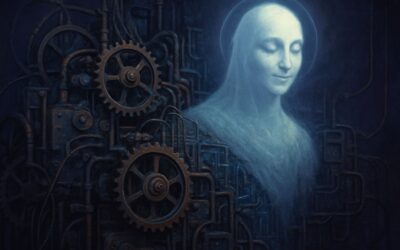Last time, we traced the evolution of the European mind as it emerged from the Middle Ages into the Enlightenment. We ended with the rise of the novel, a new form for a new age, a story for the rational, self-reliant individual like Robinson Crusoe, a man who could tame an island with logic and hard work. The focus was on the orderly, the reasonable, the conscious self.
But what about the other parts of us? The messy, irrational, contradictory, and self-destructive parts? What about the spiritual longings that defy logic? The sudden acts of grace or violence that erupt from a place deep within us we don’t understand? While Western Europe was celebrating the power of reason, the vast, sprawling, and deeply paradoxical empire to the east was brewing a literature that would ask these very questions.
Welcome to 19th-century Russia. It was a nation of brutal contradictions: a sophisticated, French-speaking aristocracy ruling over millions of enslaved serfs; a deep, mystical Christian faith coexisting with a desperate nihilism; a profound love for the motherland and a profound sense of its own backwardness. This was a place where the “cursed questions”—Does God exist? What is the meaning of suffering? How should one live a good life?—were not just for philosophers. They were the stuff of desperate, all-night conversations, the very air that people breathed. And in this pressure cooker of social turmoil and spiritual yearning, a handful of masters would take the novel and turn it into a laboratory of the human soul, creating a literature of unparalleled psychological depth and intensity.
A Brush with Death
To understand the ferocious energy of this literature, you have to begin with a man whose life was as dramatic as any of his novels: Fyodor Dostoevsky. As a young man in St. Petersburg, Dostoevsky was part of a circle of radical intellectuals who read banned books and dreamed of a utopian future. For this, he was arrested. After months in a grim prison, he and his friends were taken to a public square, tied to posts, and told they were to be executed by firing squad.
They went through the entire ritual of last rites. The soldiers raised their rifles. And at the last possible second, a messenger galloped in with a pardon from the Tsar. It was a piece of cruel, psychological theatre. The sentence was commuted to four years of hard labor in a Siberian prison camp.
This experience changed everything. The mock execution and the years in Siberia, living side-by-side with murderers and thieves, shattered Dostoevsky’s easy, youthful idealism. It plunged him into a lifelong obsession with the extreme states of the human condition: crime, guilt, madness, faith, and the possibility of redemption through suffering. He wasn’t interested in the polite drawing rooms of the aristocracy. He was a journalist of the fevered soul, and his laboratory was the dark, claustrophobic, and desperate world of the urban poor.
The Murderer with a Theory: Crime and Punishment
Dostoevsky’s most famous novel, Crime and Punishment, is a detective story in reverse. We know who the murderer is from the very first pages. The real mystery is not “whodunnit,” but “why did he do it,” and, more importantly, what happens to a man’s soul after he has committed a murder.
Our protagonist is Raskolnikov, a brilliant, handsome, but destitute ex-student, wasting away in a tiny, coffin-like room in the slums of St. Petersburg. He is starving, arrogant, and tormented by an idea. It’s a philosophical theory he’s developed: that humanity is divided into “ordinary” people, who must live in obedience, and a few “extraordinary” men—like Napoleon—who have an inner right to transgress the moral law, to “step over blood,” in the service of a higher purpose.
To prove to himself that he is one of these extraordinary men, he decides to commit a “perfect,” rational crime. He will murder a greedy, cruel old pawnbroker, a woman he considers a worthless “louse,” and use her money to do good in the world. He convinces himself that this is not a crime, but a purely logical act, a service to humanity.
The murder itself, however, is anything but rational. It’s a frantic, bloody, horrifying mess. He botches it, has to kill the pawnbroker’s gentle sister who stumbles upon the scene, and barely escapes. His grand theory immediately collapses into a fever of guilt, paranoia, and psychological torment. The rest of this massive novel is the story of his punishment, which is not the police investigation, but the internal hell he has created for himself. We are locked inside Raskolnikov’s head, wandering the hot, crowded, and stinking streets of St. Petersburg, which becomes a suffocating, dreamlike character in its own right.
His salvation comes not from another intellectual theory, but from a person who is his complete opposite: Sonya, a young woman forced into prostitution to support her family. She is a figure of immense humility, faith, and unconditional Christian love. It is Sonya who convinces him that redemption cannot be found through prideful intellect, but only through confession, accepting suffering, and rejoining the human community. Crime and Punishment is a powerful, terrifying journey into the dark places where ideas turn deadly, and a passionate argument that salvation lies not in the mind, but in the heart.
The Count in Search of the Truth
If Dostoevsky was the frantic, epileptic prophet of the city slums, his great contemporary, Leo Tolstoy, was the serene, godlike patriarch of the country estate. Where Dostoevsky was obsessed with the psychology of sinners and saints, Tolstoy was obsessed with the sprawling, epic reality of ordinary life.
Tolstoy was a count, a wealthy aristocrat from one of Russia’s oldest families. He was a man of titanic appetites—for life, for love, for food—and a titanic conscience. He was haunted by his own privilege and spent his entire life on a restless spiritual quest to find the truth about how to live a simple, authentic, and good life.
His writing style is the opposite of Dostoevsky’s feverish intensity. Tolstoy’s prose is clear, calm, and seemingly omniscient. He possesses an almost supernatural ability to inhabit the consciousness of any character he chooses—a young girl at her first ball, a soldier on the battlefield, a cynical old man, a peasant, even a dog or a horse—and to describe their inner world with absolute, convincing clarity. He is the master of the telling detail, the small physical gesture that reveals a universe of inner feeling.
History and the Human Heart: War and Peace
Tolstoy’s ambition was as vast as Russia itself, and his monumental novel War and Peace is his attempt to capture the totality of Russian life during the Napoleonic Wars. To read it is not like reading a book; it’s like living a life.
The novel follows the interconnected lives of several aristocratic families against the backdrop of Napoleon’s invasion of Russia. We follow the journeys of three main characters: the clumsy, kind-hearted, and perpetually searching Pierre Bezukhov; the proud, intellectual, and disillusioned Prince Andrei Bolkonsky; and the vibrant, impulsive, and utterly life-affirming Natasha Rostova. We watch them grow from naïve youths into adults, we see them fall in love, make disastrous mistakes, search for meaning, and confront the realities of life and death.
Woven into this human drama is Tolstoy’s radical theory of history. He passionately argues against the “Great Man” theory—the idea that history is shaped by the will of geniuses like Napoleon. For Tolstoy, this is an illusion. History, he argues, is a chaotic, unpredictable force, the result of a million tiny, individual choices made by ordinary people. His famous battle scenes are not panoramic views from a general’s hilltop tent. They are terrifying, confusing, and visceral accounts from the perspective of a single soldier, lost in the smoke and noise, with no idea what is happening.
For Tolstoy, true wisdom is found not in grand historical theories or heroic ambition, but in the small, everyday realities of family life, in a connection to the rhythms of nature, and in a humble acceptance of life’s great mysteries.
The Unhappy Family: Anna Karenina
If War and Peace is Tolstoy’s epic of history, then Anna Karenina is his epic of the heart. It begins with what is probably the most famous opening line in all of literature: “All happy families are alike; each unhappy family is unhappy in its own way.”
The novel brilliantly weaves together two contrasting stories. The first is the tragic tale of Anna, a beautiful, intelligent, and passionate woman trapped in a cold, loveless marriage to a high-ranking government official. She dares to defy the hypocritical conventions of her society by falling in love with the dashing Count Vronsky. Her story is a devastating psychological portrait of a woman who sacrifices everything—her son, her social standing, her peace of mind—for an authentic love that society will not permit, and that ultimately consumes and destroys her. Tolstoy portrays her with both profound sympathy for her suffering and a stern moral judgment of her choices.
The second story, running parallel to Anna’s, is that of Konstantin Levin, a socially awkward landowner who is Tolstoy’s clear self-portrait. Levin rejects the corrupt glamour of the city and tries to find meaning in the countryside—in agricultural reform, in the hard work of the peasants, in marrying the woman he loves, and, most of all, in a tortured, ongoing search for religious faith. While Anna’s story spirals downward into tragedy, Levin’s struggles upward, searching for a way to live an honest and meaningful life. Together, the two plots create a vast, panoramic, and deeply moving portrait of an entire society, while asking the most fundamental questions about love, faith, family, and the search for happiness.
A Life in Subtext
After the monumental, philosophical epics of Dostoevsky and Tolstoy, the last of our great Russian masters seems at first to be working on a much smaller canvas. Anton Chekhov was a doctor by profession, and he brought a doctor’s eye for diagnosis and a doctor’s deep compassion to his writing. He was not a writer of grand statements or epic plots. He was the master of the unsaid, the poet of the anti-climax. He perfected the modern short story and revolutionized the theater.His method was to show, not tell. He believed a writer’s job was to present a situation with clinical precision and let the reader or the audience draw their own conclusions. The most important things in a Chekhov story are not the events, but the spaces between them, the things that are left unspoken, the subtext that hangs in the air.
The Drama of Inaction
Before Chekhov, drama was about action. Characters made grand speeches, fought duels, committed murders, and drove the plot forward. Chekhov created something entirely new: the drama of inaction. His great plays, like Uncle Vanya, Three Sisters, and The Cherry Orchard, are famous for the fact that almost nothing happens.
In Three Sisters, three intelligent, refined women and their brother live in a provincial town, dreaming endlessly of returning to the Moscow of their youth, a city that represents all their hopes for a meaningful life. But they never go. They are trapped by their own inertia, by the slow, grinding passage of time. In The Cherry Orchard, an aristocratic family is on the brink of losing their beautiful, ancestral estate. They talk about it, they lament, they wring their hands, but they are fundamentally incapable of taking the simple, practical steps needed to save it.
The real drama in a Chekhov play is internal. It’s the drama of wasted potential, of unspoken love, of the painful gap between a character’s dreams and their reality. His characters are not villains; they are decent, sensitive, often intelligent people who are simply unable to connect with each other or to change their own lives. Chekhov viewed them with a mixture of profound sadness and gentle comedy, seeing the absurdity in their tragic inability to act. His plays are a brilliant, poignant diagnosis of a fading class and a society adrift, waiting for a future it cannot comprehend—the Russian Revolution, which was just over the horizon.
From Dostoevsky’s spiritual thrillers and Tolstoy’s epic tapestries of life, to Chekhov’s quiet, heartbreaking portraits of inertia, the great Russian writers of the 19th century took the novel and made it into a tool for the deepest possible exploration of the human soul. They were unafraid of the big questions, unafraid of messiness and contradiction, and unafraid to look into the darkest corners of the human heart. They created a literature of staggering power and depth, one that continues to haunt, challenge, and inspire us today.
Next time, we leap across the globe and into the 20th century, to a continent bursting with new, revolutionary voices. A world where ancient myths bleed into political realities, where labyrinths are found in libraries, and where a single family can live out a hundred years of solitude. We’re heading to Latin America to marvel at the birth of “Magic and Memory.”
List of Episodes in the Series
The Story of Literature EP1 | The First Scribes: Tales from the Fertile Crescent
The Story of Literature EP2 | Echoes of Olympus: The Greek and Roman Foundations
The Story of Literature EP3 | The Ocean of Stories: Epics and Wisdom of South Asia
The Story of Literature EP4 | The Brush and the Sword: Poetry and Philosophy in East Asia
The Story of Literature EP6 | Forging a Continent: From Beowulf to the Enlightenment
The Story of Literature EP7 | The Soul of the Steppe: The Great Russian Psychological Novel
The Story of Literature EP8 | Magic and Memory: The Boom of Latin American Literature
The Story of Literature EP9 | The Griot’s Legacy: Oral Traditions and Post-Colonial Voices of Africa
The Story of Literature EP10 | The Global Bookshelf: Migration, Identity, and the 21st-Century Story










0 Comments